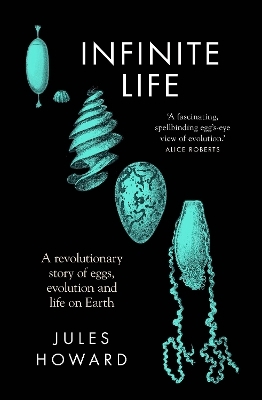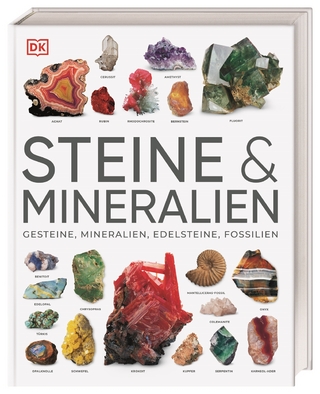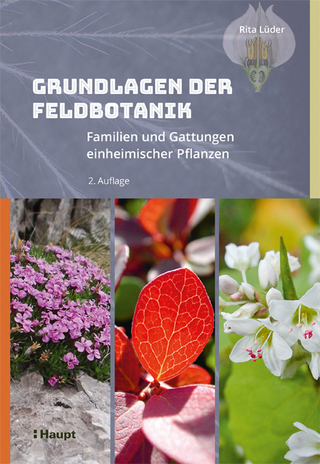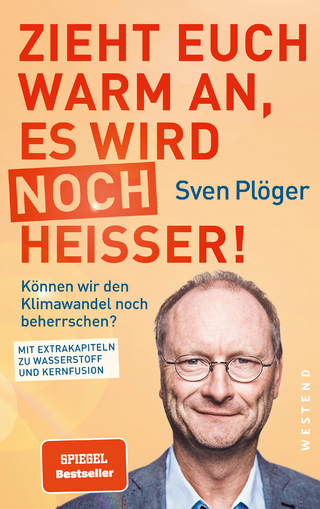
Infinite Life
A Revolutionary Story of Eggs, Evolution and Life on Earth
Seiten
2024
Elliott & Thompson Limited (Verlag)
978-1-78396-827-5 (ISBN)
Elliott & Thompson Limited (Verlag)
978-1-78396-827-5 (ISBN)
Each animal on the planet owes its existence to one very simple but crucial piece of evolutionary engineering: the egg.
It’s time to tell a new story of life on Earth.
Every animal on the planet owes its existence to one crucial piece of evolutionary engineering: the egg.
It’s time to tell a new story of life on Earth.
‘Jules Howard’s egg’s-eye view of evolution is dripping with fascinating insights’ ALICE ROBERTS
‘So much passion and poetic prose' BBC Radio 4, Inside Science
If you think of an egg, what do you see in your mind’s eye? A chicken egg, hard-boiled? A slimy mass of frogspawn? Perhaps you see a human egg cell, prepared on a microscope slide in a laboratory? Or the majestic marble-blue eggs of the blackbird?
Every egg there has ever been, is an emblem of survival. Yet the evolution of the animal egg is the dramatic subplot missing in many accounts of how life on Earth came to be. Quite simply, without this universal biological phenomenon, animals as we know them, including us, could not have evolved and flourished.
In Infinite Life, zoology correspondent Jules Howard takes the reader on a mind-bending journey from the churning coastlines of the Cambrian Period and Carboniferous coal forests, where insects were stirring, to the end of the age of dinosaurs when live-birthing mammals began their modern rise to power. Eggs would evolve from out of the sea; be set by animals into soils, sands, canyons and mudflats; be dropped in nests wrapped in silk; hung in stick nests in trees, covered in crystallised shells or secured by placentas.
Whether belonging to birds, insects, mammals or millipedes, animal eggs are objects that have been shaped by their ecology, forged by mass extinctions and honed by natural selection to near-perfection. Finally, the epic story of their role in the tapestry of life can be told.
‘In a book that brilliantly evokes past eras, Howard provides a new perspective on the history of life on Earth.’ The Mail on Sunday
It’s time to tell a new story of life on Earth.
Every animal on the planet owes its existence to one crucial piece of evolutionary engineering: the egg.
It’s time to tell a new story of life on Earth.
‘Jules Howard’s egg’s-eye view of evolution is dripping with fascinating insights’ ALICE ROBERTS
‘So much passion and poetic prose' BBC Radio 4, Inside Science
If you think of an egg, what do you see in your mind’s eye? A chicken egg, hard-boiled? A slimy mass of frogspawn? Perhaps you see a human egg cell, prepared on a microscope slide in a laboratory? Or the majestic marble-blue eggs of the blackbird?
Every egg there has ever been, is an emblem of survival. Yet the evolution of the animal egg is the dramatic subplot missing in many accounts of how life on Earth came to be. Quite simply, without this universal biological phenomenon, animals as we know them, including us, could not have evolved and flourished.
In Infinite Life, zoology correspondent Jules Howard takes the reader on a mind-bending journey from the churning coastlines of the Cambrian Period and Carboniferous coal forests, where insects were stirring, to the end of the age of dinosaurs when live-birthing mammals began their modern rise to power. Eggs would evolve from out of the sea; be set by animals into soils, sands, canyons and mudflats; be dropped in nests wrapped in silk; hung in stick nests in trees, covered in crystallised shells or secured by placentas.
Whether belonging to birds, insects, mammals or millipedes, animal eggs are objects that have been shaped by their ecology, forged by mass extinctions and honed by natural selection to near-perfection. Finally, the epic story of their role in the tapestry of life can be told.
‘In a book that brilliantly evokes past eras, Howard provides a new perspective on the history of life on Earth.’ The Mail on Sunday
Jules Howard is a zoological correspondent, science writer and broadcaster, whose recent book, Wonderdog, won the 2022 Barker Book Prize for non-fiction. He writes on a host of topics relating to zoology, ecology and wildlife conservation and appears regularly in BBC Science Focus magazine and on radio and TV, including BBC Breakfast and Radio 4's Nature Table and The Ultimate Choice. He lives in Northamptonshire with his wife and two children.
| Erscheinungsdatum | 19.06.2024 |
|---|---|
| Verlagsort | London |
| Sprache | englisch |
| Maße | 156 x 235 mm |
| Themenwelt | Sachbuch/Ratgeber ► Natur / Technik ► Natur / Ökologie |
| Naturwissenschaften ► Biologie ► Evolution | |
| ISBN-10 | 1-78396-827-3 / 1783968273 |
| ISBN-13 | 978-1-78396-827-5 / 9781783968275 |
| Zustand | Neuware |
| Haben Sie eine Frage zum Produkt? |
Mehr entdecken
aus dem Bereich
aus dem Bereich
über 500 faszinierende Gesteine, Minerale, Edelsteine und Fossilien
Buch | Hardcover (2023)
DK Verlag Dorling Kindersley
26,95 €
Familien und Gattungen einheimischer Pflanzen
Buch | Hardcover (2022)
Haupt Verlag
64,00 €
vollständig aktualisierte Neuausgabe mit den zusätzlichen …
Buch | Softcover (2023)
Westend (Verlag)
22,00 €


